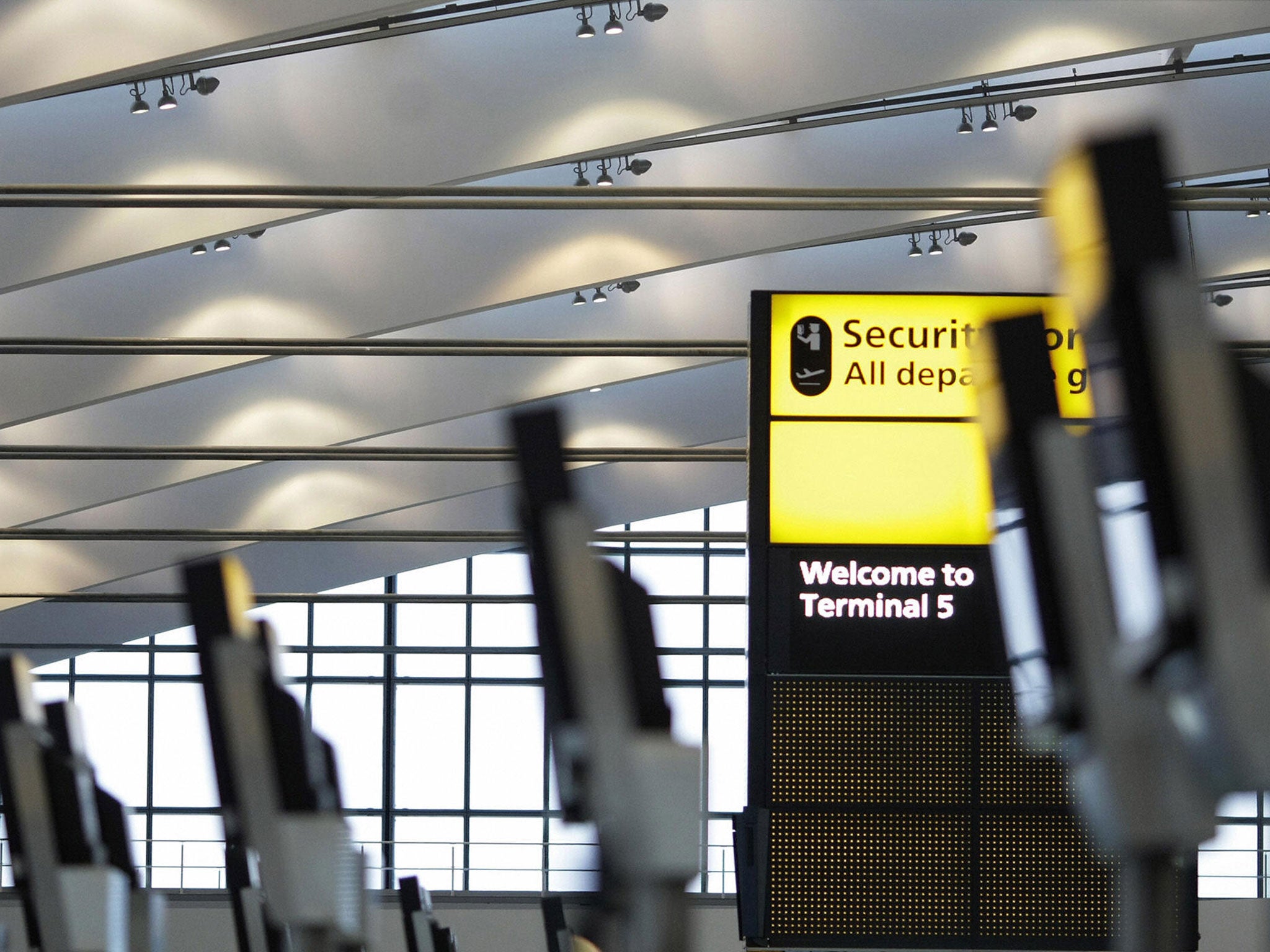Exclusive: Watchdog takes police to court over airport ‘harassment’
Met delays over investigating detention of innocent Muslims left IPCC ‘with no option but to take matter to High Court'

Scotland Yard acted unlawfully after failing to fully investigate claims that innocent Muslims were detained and harassed at airports under sweeping anti-terrorism laws, the police watchdog has claimed.
The country’s biggest force will be taken to court for repeatedly delaying inquiries into the alleged abuse of powers to stop, question and detain people at ports and airports.
The Independent Police Complaints Commission’s highly unusual decision to take the Metropolitan Police to court follows claims by some Muslims that they were stopped because of their appearance and that some were forced to miss flights. Passengers have been asked if they carried the Koran, why they were growing their beards, and what they thought about the Queen and Barack Obama, according to complaints compiled by one campaign group.
One traveller was held for hours, missing his flight, and then was stopped again as he tried to board a rebooked trip after a night spent in the terminal.
The IPCC warned the Metropolitan Police of legal action last month and carried out its threat on Wednesday.
“The Metropolitan Police’s repeated delay and reluctance to comply has left us with no option but to take this matter to the High Court to resolve the position once and for all,” said Deborah Glass, deputy chair of the IPCC. “It’s wholly unsatisfactory that the IPCC is denied answers … about the Metropolitan Police’s use of this power.”
The commission is supervising 19 complaints against the force over the use of Schedule 7 of the 2000 Terrorism Act which allows for people to be stopped without reasonable suspicion that they are involved with terrorism. There are five complaints against other forces still under investigation.
The law provides wide-ranging powers to question people for up to nine hours, with anyone failing to co-operate facing three months in prison. The Home Office said the powers should not be used based on someone’s ethnicity or religion but the Met has not investigated the reason for stopping someone, or provided background documents to the watchdog, says the IPCC.
One of the complainants, Asif Bhayat, 31, told The Independent that he had been stopped on all of the three occasions that he travelled out of the country in 2012. He said that he was stopped by police on his return from a charity trip to Sarajevo. “I asked if it was because of the way I looked; he smiled and shrugged his shoulders.”
Mr Bhayat, who works on the issue for the campaign group Cageprisoners, added: “Schedule 7 must be immediately repealed as not only are its powers breathtakingly broad, it is virtually unaccountable.”
The Home Office said that more than 97 per cent of examinations lasted less than one hour, and most less than 15 minutes. The Government’s reviewer of terrorism legislation, David Anderson QC, has announced that he is investigating the use of Schedule 7 following the detention of David Miranda, the partner of the Guardian journalist who has reported on intelligence material leaked by Edward Snowden.
His most recent review showed that the schedule was used for more than 61,000 people in 2012-13 – a reduction of 12 per cent on the previous year, when there were only 24 terrorism-related arrests, 0.03 per cent of those examined. Mr Anderson said that he had found no evidence that people of Asian appearance were more likely to be stopped than under normal police powers.
Scotland Yard said: “We have been working hard to provide a range of options to agree a procedure for dealing with such investigations that is acceptable to all stakeholders.
“However, despite our efforts to reach an agreement with the IPCC over the last few months, they have now served us with proceedings for a judicial review. We will now be considering the claim and will file our defence accordingly.”
